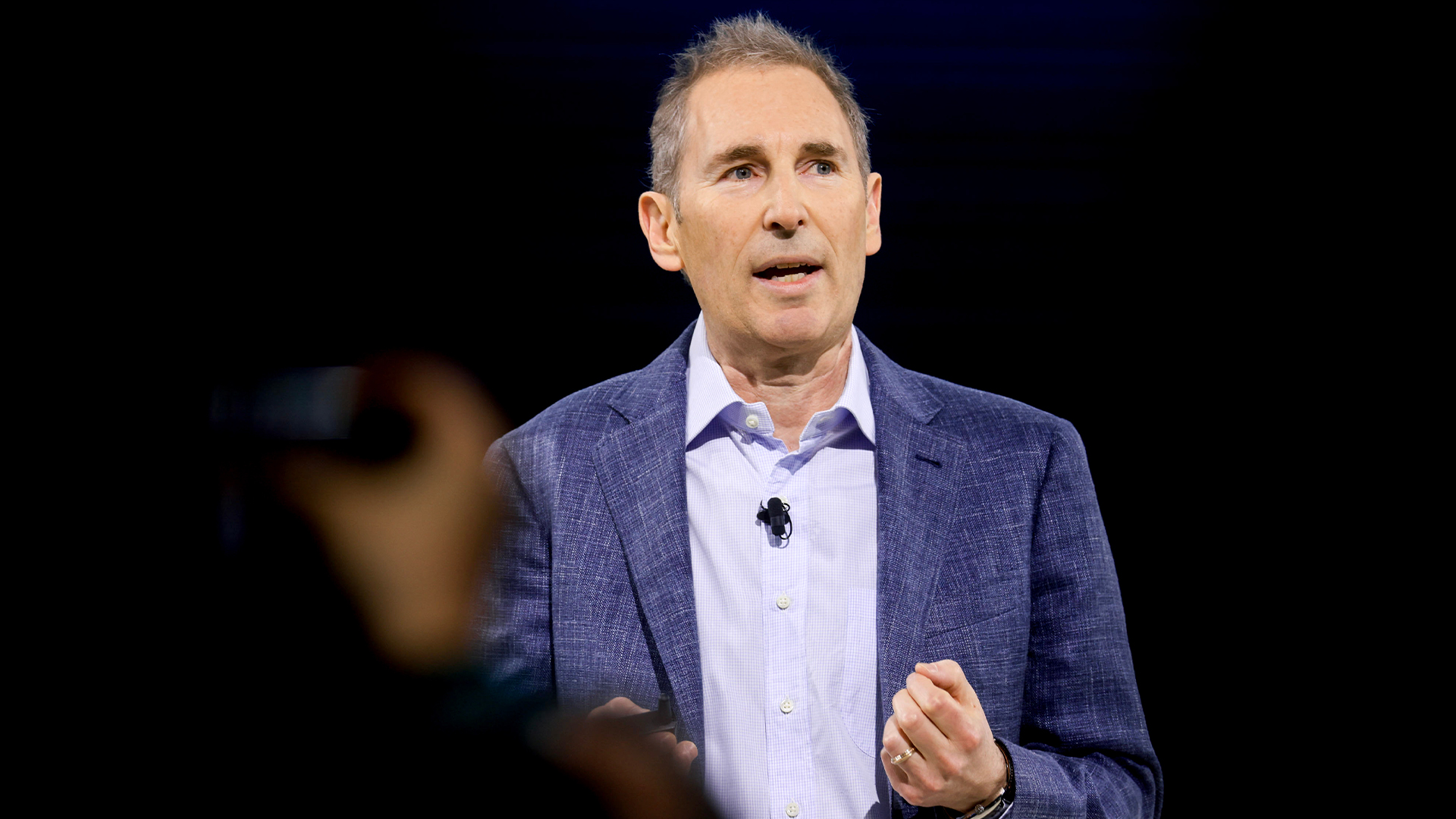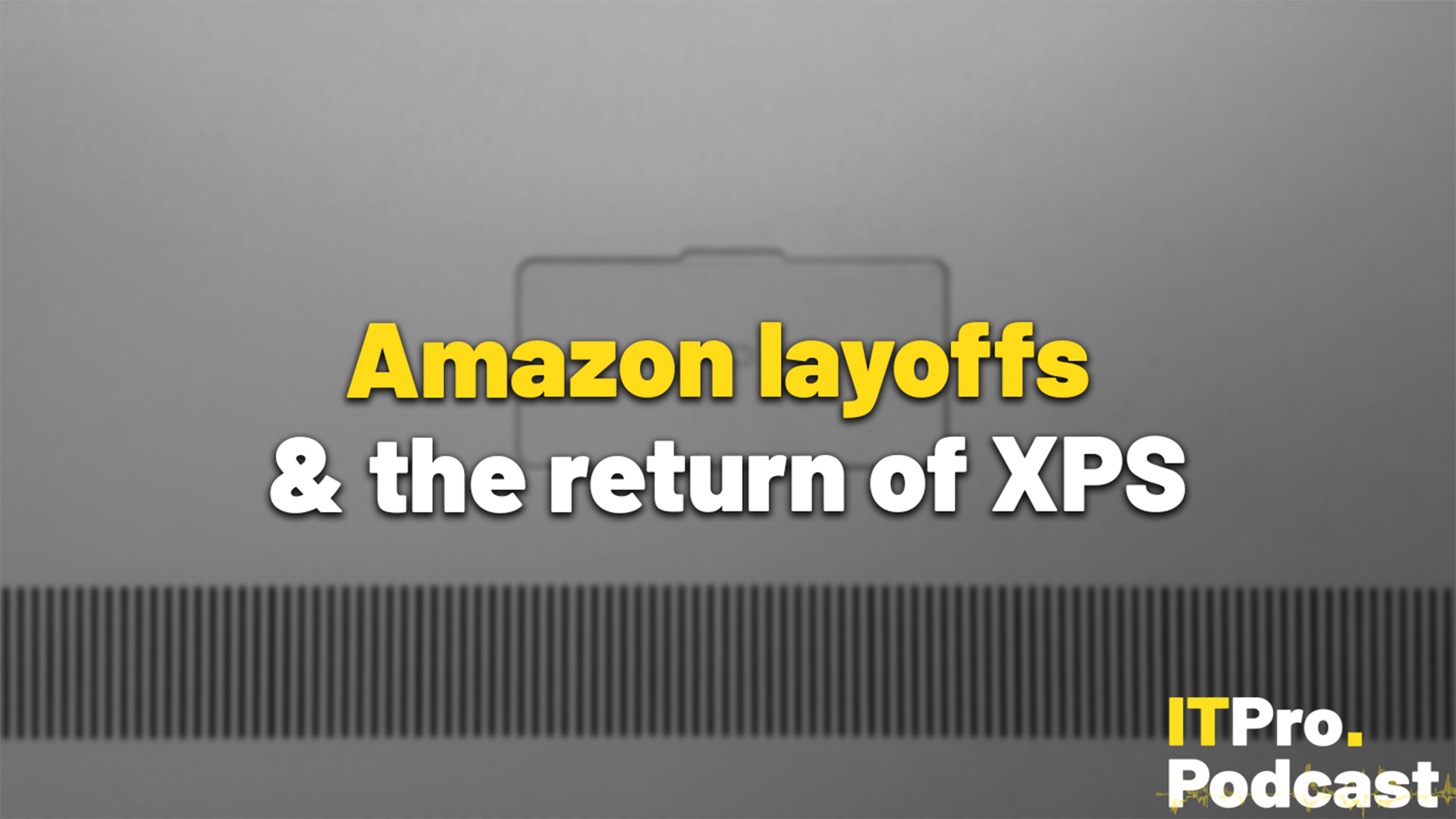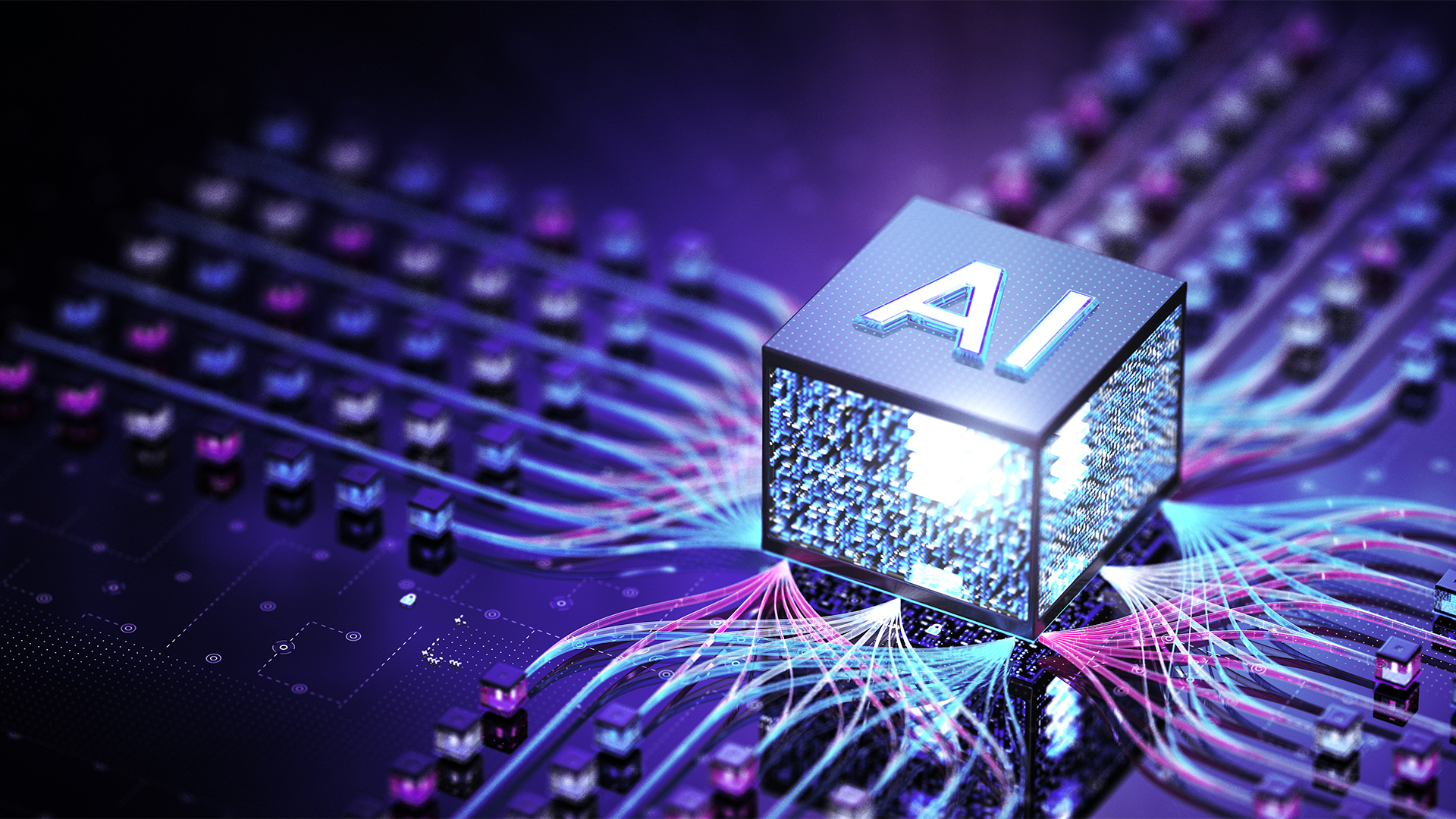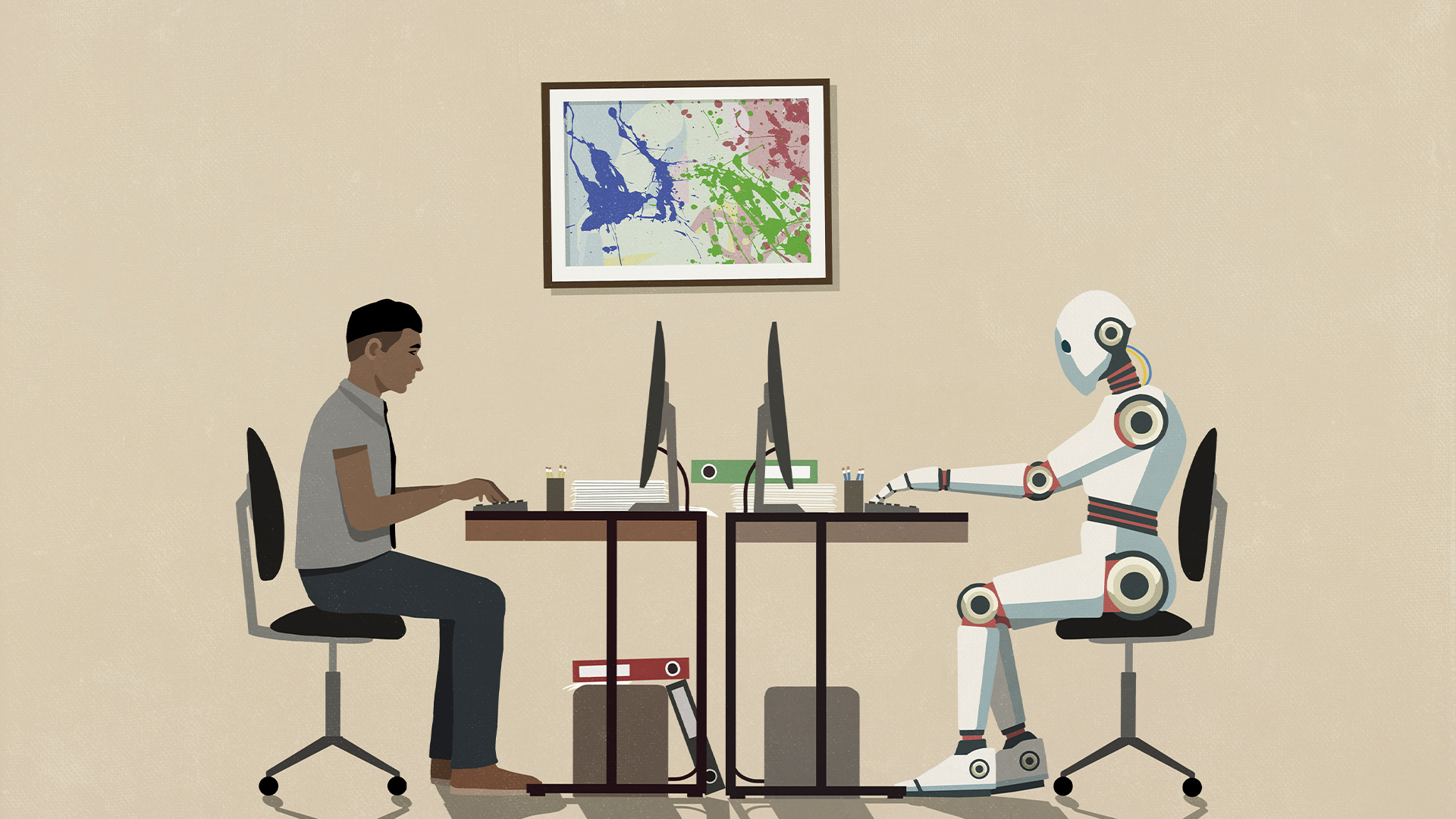‘Lean into it’: Amazon CEO Andy Jassy thinks enterprises need to embrace AI to avoid being left behind – even if that means fewer jobs in the future
Andy Jassy says Amazon will be able to automate some roles and cut staff numbers


Sign up today and you will receive a free copy of our Future Focus 2025 report - the leading guidance on AI, cybersecurity and other IT challenges as per 700+ senior executives
You are now subscribed
Your newsletter sign-up was successful
Amazon won't need as many human workers in the future, according to CEO Andy Jassy, but that’ll be a good thing for those that remain.
In a recent interview, Jassy doubled down on the AI plans outlined in a memo to staff last month. At the time, Jassy said the use of the technology will enable the company to unlock “efficiency gains” - a common talking point for companies ramping up AI adoption.
Ultimately, the strategy will lead to "fewer people doing some of the jobs that are being done today”, Jassy said.
Speaking to CNBC, the Amazon chief exec defended the move when asked about the impact of the technology on the workforce, suggesting that it will deliver benefits for both the company and staff.
"This AI technology is going to be the most transformative technology in our lifetime," Jassy said, adding: "it's going to change the way we work."
He claimed AI agents would be able to do coding, research, analytics, security, website localization and "they'll do spreadsheets over time."
"That means it's going to change a lot of these particular job functions,” he added.
Sign up today and you will receive a free copy of our Future Focus 2025 report - the leading guidance on AI, cybersecurity and other IT challenges as per 700+ senior executives
Given the scale of the predicted change, Jassy said businesses and employees alike now face a decision - they can either “lean into it and embrace it” or they can “wish it away and have it happen to you”.
Amazon is leaning into AI
Jassy argued that Amazon is better off doing the former, suggesting it would make for better work for the staff who remain employed.
"They won't have to do as much work," he said, "and every single person gets to start every single task at a more advanced starting spot. That's going to make all of our jobs more interesting."
"Like with every technical transformation, there will be fewer people doing some of the jobs that the technology actually starts to automate," Jassy added.
"But there’s going to be other jobs — we're going to hire more people in AI, more people in robotics."
Amazon has reportedly cut more than 20,000 jobs since 2022, including recent cuts to its books and driverless divisions.
While these cuts weren’t linked to AI and largely occurred during the infamous “year of efficiency” in 2023, concerns are growing over the impact of the technology on the job market.
Recent analysis found that entry-level roles are being impacted by the influx of AI tools across a range of industries, for example.
This has prompted calls from leading industry figures to initiate a frank discussion on the matter, with Anthropic CEO Dario Amodei suggesting workers are “burying their heads in the sand” on the topic.
There have already been high-profile examples of AI-related job cuts, most notably at Klarna. The buy now, pay later giant cut staff as part of a sharpened focus on AI adoption, which proved highly beneficial for the company.
Similarly, Salesforce pinned jobs cuts on an AI focused reorganization, Intuit slashed 1,800 jobs to power AI investment, and CrowdStrike cut 500 jobs earlier this year as part of a strategic shift to AI.
Some industry leaders appear unfazed despite growing concerns, however. Google CEO Sundar Pichai offered a relaxed outlook on the topic in a recent interview, for example.
According to Pichai, while the technology may impact jobs, it will ultimately lead to better quality of work - at least for those still employed.
MORE FROM ITPRO
- Big tech promised developers productivity gains with AI tools – now they’re being rendered obsolete
- AI coding tools are finally delivering results for enterprises
- Satya Nadella joins Google’s Sundar Pichai in revealing the scale of AI-generated code at the tech giants
Freelance journalist Nicole Kobie first started writing for ITPro in 2007, with bylines in New Scientist, Wired, PC Pro and many more.
Nicole the author of a book about the history of technology, The Long History of the Future.
-
 AWS CEO Matt Garman isn’t convinced AI spells the end of the software industry
AWS CEO Matt Garman isn’t convinced AI spells the end of the software industryNews Software stocks have taken a beating in recent weeks, but AWS CEO Matt Garman has joined Nvidia's Jensen Huang and Databricks CEO Ali Ghodsi in pouring cold water on the AI-fueled hysteria.
-
 Deepfake business risks are growing
Deepfake business risks are growingIn-depth As the risk of being targeted by deepfakes increases, what should businesses be looking out for?
-
 AI isn’t making work easier, it’s intensifying it – researchers say teams are now facing 'unsustainable' workloads, cognitive strain, and higher levels of burnout
AI isn’t making work easier, it’s intensifying it – researchers say teams are now facing 'unsustainable' workloads, cognitive strain, and higher levels of burnoutNews While workers report productivity gains with AI, that means they’re faced with bigger workloads
-
 January rundown: Amazon layoffs and the return of XPS
January rundown: Amazon layoffs and the return of XPSITPro Podcast This year's tech layoffs have just begun, as Amazon sheds 16,000 workers in one go
-
 Business leaders are using AI as a “license to reduce headcount” – new Morgan Stanley research lays bare the impact on UK workers
Business leaders are using AI as a “license to reduce headcount” – new Morgan Stanley research lays bare the impact on UK workersNews Analysis of five sectors highlights an "early warning sign" of AI’s impact on jobs
-
 Lloyds Banking Group wants to train every employee in AI by the end of this year – here's how it plans to do it
Lloyds Banking Group wants to train every employee in AI by the end of this year – here's how it plans to do itNews The new AI Academy from Lloyds Banking Group looks to upskill staff, drive AI use, and improve customer service
-
 CEOs are fed up with poor returns on investment from AI: Enterprises are struggling to even 'move beyond pilots' and 56% say the technology has delivered zero cost or revenue improvements
CEOs are fed up with poor returns on investment from AI: Enterprises are struggling to even 'move beyond pilots' and 56% say the technology has delivered zero cost or revenue improvementsNews Most CEOs say they're struggling to turn AI investment into tangible returns and failing to move beyond exploratory projects
-
 Companies continue to splash out on AI, despite disillusionment with the technology
Companies continue to splash out on AI, despite disillusionment with the technologyNews Worldwide spending on AI will hit $2.5 trillion in 2026, according to Gartner, despite IT leaders wallowing in the "Trough of Disillusionment" – and spending will surge again next year.
-
 A new study claims AI will destroy 10.4 million roles in the US by 2030, more than the number of jobs lost in the Great Recession – but analysts still insist there won’t be a ‘jobs apocalypse’
A new study claims AI will destroy 10.4 million roles in the US by 2030, more than the number of jobs lost in the Great Recession – but analysts still insist there won’t be a ‘jobs apocalypse’News A frantic push to automate roles with AI could come back to haunt many enterprises, according to Forrester
-
 Businesses aren't laying off staff because of AI, they're using it as an excuse to distract from 'weak demand or excessive hiring'
Businesses aren't laying off staff because of AI, they're using it as an excuse to distract from 'weak demand or excessive hiring'News It's sexier to say AI caused redundancies than it is to admit the economy is bad or overhiring has happened
